Why Do Alexandrine Parrots Scream?
Alexandrine parrots are notorious for their loud and incessant screaming. This behavior can be frustrating for owners, neighbors, and even the parrot itself. Understanding why Alexandrine parrots scream is crucial for managing this behavior and ensuring a happy and healthy pet.
Parrot screaming is a natural behavior that serves several purposes, including communication, territorial defense, and attention-seeking. However, excessive screaming can be a sign of boredom, frustration, or even illness. Different types of parrot screams can indicate different emotions and needs, such as fear, excitement, hunger, or discomfort. Therefore, it is essential to learn how to distinguish between normal and excessive screaming and address the underlying causes accordingly.
Why Parrots Scream
One reason parrots scream is to communicate with their flock. In the wild, parrots use their screams to alert their flock of potential danger or to locate their flock members. When kept as pets, parrots may continue to use their screams as a form of communication with their human family.
Another reason parrots scream is due to boredom or lack of stimulation. Parrots are intelligent creatures that require mental and physical stimulation to thrive. Without enough stimulation, parrots may become bored, frustrated, and start screaming excessively.
Parrots may also scream when they are feeling anxious or stressed. Separation anxiety is a common issue among parrots, and they may scream when their human family leaves the room or the house. Additionally, parrots may scream if they are not feeling well or are in pain.
It is important to note that excessive screaming can be a sign of a larger issue, such as separation anxiety or a health problem. If a parrot suddenly starts screaming excessively, it is important to consult with a veterinarian to rule out any underlying health issues.
Read our article about How to Breed Alexandrine Parrots
Different Types of Parrot Screams
It’s important to understand the different types of screams in order to interpret what your bird is trying to communicate.
Flock Calls

One of the most common types of parrot screams is the flock call. This is a loud, repetitive noise that parrots make when they are trying to locate members of their flock. Flock calls can be heard up to a mile away and are used to establish contact with other birds.
Contact Calls
Contact calls are similar to flock calls but are used to communicate with individual birds rather than the entire flock. These calls are softer and less repetitive than flock calls and are used to locate specific birds or to signal that it’s time to regroup.
Alarm Calls
Parrots are very sensitive to their environment and will often make loud, harsh screams when they feel threatened or scared. These alarm calls are designed to alert other members of the flock to potential danger and to scare away predators.
Vocalizations
In addition to screams, parrots vocalize in a variety of other ways. They can mimic human speech, whistle tunes, and make a wide range of other noises. Vocalizations are used for communication, entertainment, and to establish their territory.
How to Manage Parrot Screaming
Excessive screaming can become a problem for pet owners. Here are some methods to train your Alexandrine parrot to make less noise:
Training Your Bird
- Clicker train your parrot: Clicker training is an effective way to mentally stimulate your parrot and decrease its squawking. Get a clicker and small, ingestible parrot treats. First, associate the clicker and treat with one another. Then, use the clicker as you would a treat and mark each correct behavior with a click. Reward your bird immediately after it obeys you and give it verbal praise every time you give it a food reward for its good behavior.
- Reward good behavior: Any time your parrot stops screaming when you’ve left the room, or mimics your soft, muted tones, give your parrot a delicious treat, praise, or click if you are clicker training. Reward your bird immediately after it obeys you and give it verbal praise every time you give it a food reward for its good behavior.
- Teach your parrot to speak softly: You may be able to train your bird to whisper or speak softly instead of screaming. Practice, patience, and consistency are key when trying to train your bird to stop screaming. Speak softly to your parrot and use hushed tones or communicate with it through whistles.
- Be consistent: Consistency is the key to any animal behavioral training. Praise and reward your parrot every time it behaves well, and ignore it every time it acts out.
Changing its Environment
- Turn out the lights: Parrots generally need between 10 and 12 hours of sleep each night. Exposure to more than 12 hours of light each day can lead to elevated hormone levels, aggressive behavior, and increased noise output. Close the curtains in the afternoon to limit sunlight exposure, and put a sheet or cover over your bird’s cage when you go to bed.
- Keep the noise down: Some parrots respond to environmental sound with their own sound. If you’re watching television or listening to music at home, keep it at a relatively low volume. Talk quietly to your bird and try providing white noise for your parrot, especially if it screams when you’re not home.
- Avoid quick movements: Move slowly around your bird, and encourage everyone else in your household to do the same. Always supervise children when they handle or interact with the parrot and discourage children from running through or around in the room your parrot is in.
- Take note of its reactions: It’s possible that your bird is distressed by the sight of certain physical characteristics. Wearing a hat around your bird may cause it to feel uncertain or anxious about who you are.
Remember, punishing your parrot with yelling or making loud noises is not an effective way to stop its screaming. Ignoring attention-seeking behavior is the best way to train your parrot out of its excessive screaming.
Other Noisy Birds
It’s not just Alexandrine Parrots that can make a lot of noise. There are several other species of birds that can be quite loud, especially if they feel threatened or are trying to communicate with their owners. Here are some other noisy birds to be aware of:
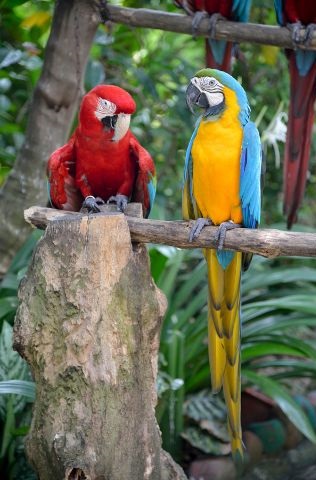
- Cockatoo: Cockatoos are known for their loud screeching and squawking. They can make noise 1-2 times louder than an Alexandrine Parrot, making them one of the noisiest birds around.
- Conure: Conures are also quite loud and can make a lot of noise when they feel threatened or excited. They can make noise 1-2 times louder than an Alexandrine Parrot.
- Parakeet: Parakeets are smaller birds that can also be quite noisy. They can make noise 1 time louder than an Alexandrine Parrot.
- Macaw: Macaws are large birds that can make a lot of noise when they feel threatened or excited. They can make noise 1-2 times louder than an Alexandrine Parrot.
- African Grey: African Greys are known for their ability to mimic sounds and words, which can make them quite noisy at times. They can make noise 1 time louder than an Alexandrine Parrot.
- Budgie: Budgies are small birds that can also be quite noisy. They can make noise 1 time louder than an Alexandrine Parrot.
While these birds can be noisy, it’s important to remember that they are also intelligent and social creatures that require attention and interaction to thrive. With proper training and care, you can reduce the amount of noise your bird makes and create a happy and healthy environment for both you and your feathered friend.
Parrot Forums and Communities
Parrot forums and communities can be an excellent resource for Alexandrine parrot owners who are struggling with their bird’s screaming behavior. These online communities are typically made up of parrot owners, bird enthusiasts, and experts who can provide helpful advice and support.
One popular forum is the Parrot Forum Parrot Owners Community, which has a dedicated section for Alexandrine parrots. Here, owners can share their experiences and ask for advice from other Alexandrine parrot owners. For example, one member shared their concern about their Alexandrine parrot’s constant screaming and calling, and other members offered troubleshooting tips and advice on how to address the behavior.
Another forum that may be helpful for Alexandrine parrot owners is the Avian Avenue forum. This forum has a section dedicated to parrots, where owners can share information and ask questions about their birds’ behavior. While this forum is not specifically for Alexandrine parrots, it can still be a useful resource for owners looking for advice on how to manage their bird’s screaming behavior.

In addition to forums, there are also online communities and social media groups dedicated to parrot owners. These groups can be a great way to connect with other owners and share advice and tips on how to manage their bird’s behavior. For example, the Parrot Owners group on Facebook has over 200,000 members and is a great resource for Alexandrine parrot owners looking for advice and support.
Parrot Noise Levels and Expectations
It is important to set realistic expectations when it comes to the level of noise a parrot can make. While it is natural for a parrot to scream, it is not necessary for the bird to scream excessively. Parrots can learn to make more noise when they want attention or are excited, but they should not be excessively noisy.
One of the reasons why a bird might scream excessively is due to the noise in the background. If the bird is in a noisy environment, it might feel the need to scream louder to be heard. Providing the bird with a quiet and peaceful environment can help reduce the amount of noise it makes.
Parrot owners can also use white noise to help reduce the amount of noise their birds make. White noise is a type of noise that is produced by combining different frequencies of sound. It can help mask other noises in the environment and provide a calming effect on the bird.
Addressing Excessive Screaming
Excessive screaming is one of the most common unwanted behaviors exhibited by Alexandrine parrots. It can be frustrating for the owner, and it may frighten other pets or family members. However, it is essential to understand that screaming is a natural behavior for birds in the wild. It is their way of communicating with other birds in their flock. Therefore, it is not realistic to expect a parrot to stop screaming altogether. However, it is possible to reduce excessive screaming and get the bird to accept a certain level of noise.
One of the first things an owner should do when addressing excessive screaming is to give the bird plenty of attention. Alexandrine parrots are social animals and require a lot of interaction with their owners. If a parrot feels neglected, it may resort to excessive screaming to get attention. Therefore, it is crucial to spend time with the bird every day, talking to it, playing with it, and giving it treats.

Another way to reduce excessive screaming is to reward the bird for good behavior. For example, if the bird is quiet for a few minutes, the owner can give it a treat or a toy. This positive reinforcement will encourage the bird to continue the good behavior and reduce the excessive screaming.
It is also important to create a routine for the bird. Alexandrine parrots thrive on routine and predictability. Therefore, it is essential to establish a regular schedule for feeding, playtime, and sleep. This routine will help the bird feel more secure and reduce the likelihood of excessive screaming.
If the excessive screaming persists, it may be necessary to seek the help of a behaviorist. A behaviorist can work with the owner to identify the underlying cause of the excessive screaming and develop a plan to address it.
When to Consider Rehoming
Rehoming a pet is never an easy decision to make, but sometimes it is the best option for both the owner and the animal. In the case of Alexandrine parrots, rehoming may be necessary if the bird’s screaming behavior becomes unmanageable or if the owner is no longer able to provide the necessary care.
If an owner has tried various methods to address the bird’s screaming behavior, such as providing enough mental and physical stimulation, training, and socialization, but the bird continues to scream excessively, rehoming may be the best option. It is important to note that excessive screaming can be a sign of underlying health issues, so it is important to consult with a veterinarian before making any decisions.
When considering rehoming, it is important to find a reputable rescue or adoption organization that specializes in birds. These organizations can help ensure that the bird is placed in a loving and knowledgeable home that can provide the necessary care and attention. It is also important to provide the new owner with as much information as possible about the bird’s history, behavior, and care requirements.
Rehoming a pet can be a difficult decision, but it is important to prioritize the well-being of the animal. If an owner has tried various methods to address their Alexandrine parrot’s screaming behavior and is no longer able to provide the necessary care, rehoming may be the best option for both the owner and the bird.
Read our article about Do Alexandrine Parrots Bite
Conclusion
Screaming is a natural behavior for Alexandrine parrots, and it serves as a form of communication. Parrots are highly intelligent and social creatures, and they use vocalizations to convey different messages to their owners and other birds.
It is important to understand that screaming can also be a sign of distress or illness, so it is crucial to take your Alexandrine parrot to a vet if you notice any abnormal vocalizations. Providing your parrot with adequate attention, socialization, and mental stimulation can also help reduce excessive screaming.
Additionally, it is crucial to establish a consistent training routine with positive reinforcement techniques to teach your parrot appropriate behaviors and discourage unwanted ones. Consistency and patience are key when training your Alexandrine parrot, and it may take some time for your parrot to learn new behaviors and habits.
Understanding why Alexandrine parrots scream and how to address excessive screaming can help strengthen the bond between you and your feathered friend and ensure their overall health and well-being.
Frequently Asked Questions
What triggers Alexandrine parrots to scream?
Alexandrine parrots can scream for various reasons, including boredom, stress, fear, excitement, or attention-seeking behavior. They may also scream if they are hungry, thirsty, or uncomfortable. Identifying the trigger for the screaming can help in finding a solution to stop it.
How can you stop Alexandrine parrots from screaming?
There are several ways to stop Alexandrine parrots from screaming, including providing them with enough attention, toys, and activities to keep them engaged. Training and positive reinforcement can also be effective in reducing screaming behavior. Some owners find success with ignoring the screaming, as responding to it may reinforce the behavior.
Do Alexandrine parrots scream more than other parrots?
Alexandrine parrots are known for their loud vocalizations, but they do not necessarily scream more than other parrots. Each bird is unique, and their vocalizations may vary depending on their personality, environment, and training.
What are some common reasons for Alexandrine parrots to scream?
Some common reasons for Alexandrine parrots to scream include boredom, stress, fear, excitement, or attention-seeking behavior. They may also scream if they are hungry, thirsty, or uncomfortable.
Can screaming be a sign of distress in Alexandrine parrots?
Yes, screaming can be a sign of distress in Alexandrine parrots. If the screaming is sudden, persistent, or accompanied by other symptoms such as fluffing feathers, loss of appetite, or lethargy, it may indicate a health issue or emotional distress. In such cases, it is important to consult a veterinarian.
What are some techniques for training Alexandrine parrots to stop screaming?
Training techniques such as positive reinforcement, clicker training, and target training can be effective in reducing screaming behavior in Alexandrine parrots. Consistency, patience, and understanding the bird’s body language and vocalizations are key to successful training. Providing the bird with enough attention, toys, and activities can also help reduce screaming behavior.
How can I make my Alexandrine Parrot quieter?
To make your Alexandrine Parrot quieter, it is important to understand the root cause of its screaming. Provide your bird with plenty of mental and physical stimulation, such as toys, puzzles, and ample out-of-cage time. Engage in positive reinforcement training to reward desired behaviors and redirect the bird’s attention when it starts to scream.
What should I do if my Alexandrine Parrot screams excessively?
Excessive screaming can be a sign of distress or an underlying health issue. If your Alexandrine Parrot continues to scream excessively despite providing a stimulating environment, it is recommended to consult with an avian veterinarian to rule out any medical conditions. They may be able to offer further guidance and provide solutions to curb the excessive screaming.
Should I ignore my Alexandrine Parrot when it screams?
Ignoring your Alexandrine Parrot when it screams can be an effective strategy to discourage the behavior. By not providing attention or reinforcement, you are sending a message that screaming does not lead to any rewarding outcome. However, it is essential to ensure that your parrot’s basic needs are met, such as food, water, and a clean environment.
Can covering the cage help reduce my Alexandrine Parrot’s screaming?
Covering the cage can be a useful technique to reduce your Alexandrine Parrot’s screaming. Covering the cage creates a sense of security and can help your parrot feel safe and calm. It also limits visual stimuli that may trigger the bird to scream. However, it is essential to ensure that your parrot still receives enough natural light and social interaction during the day.
Can diet affect my Alexandrine Parrot’s screaming behavior?
Diet can play a role in your Alexandrine Parrot’s screaming behavior. Ensure that your parrot is receiving a balanced and nutritious diet that meets its specific dietary requirements. Lack of certain nutrients or an improper diet can lead to physical discomfort, which may contribute to increased screaming. Consult with an avian veterinarian for guidance on providing a suitable diet for your parrot.
Are there any calming techniques I can use to reduce my Alexandrine Parrot’s screaming?
There are several calming techniques that you can use to reduce your Alexandrine Parrot’s screaming. Some owners find that playing soft and soothing music or providing white noise can have a calming effect on their parrots. Additionally, creating a calm environment with dim lighting and comfortable perches can help promote relaxation and reduce the urge to scream.
Can socialization and interaction with my Alexandrine Parrot reduce its screaming?
Yes, socialization and interaction with your Alexandrine Parrot can play a significant role in reducing its screaming behavior. Parrots are highly social creatures and require regular social interaction with their owners. Engage in interactive playtime, training sessions, and positive reinforcement to establish a strong bond with your parrot and reduce its need to scream for attention.

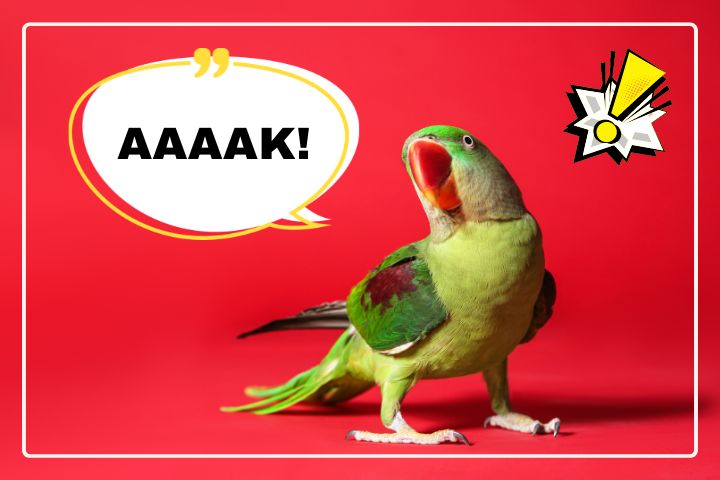
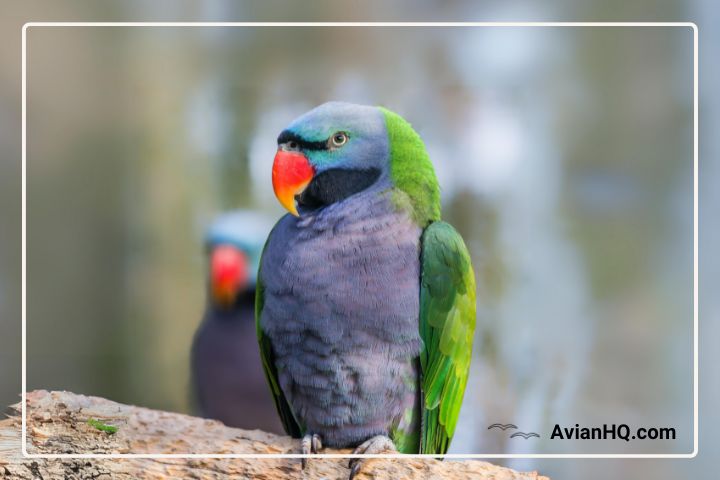
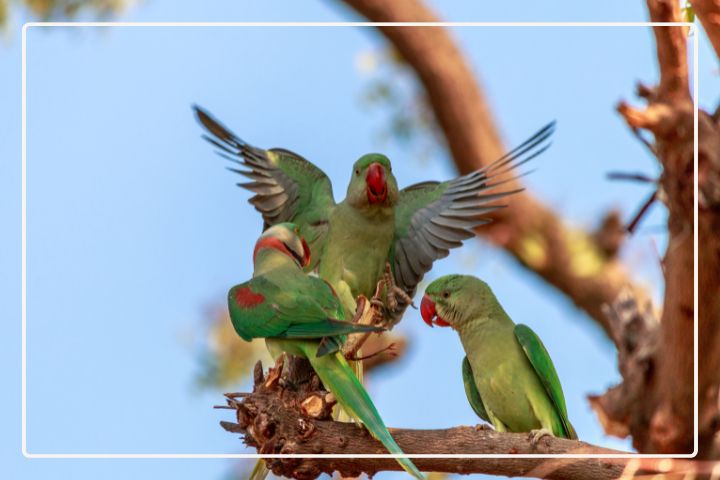
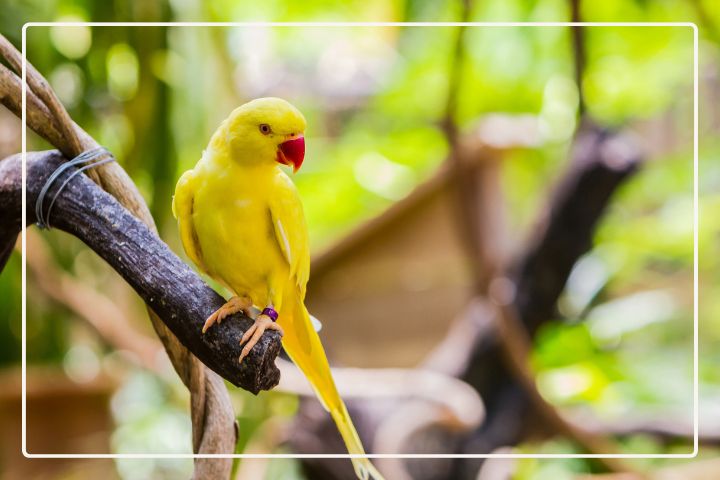

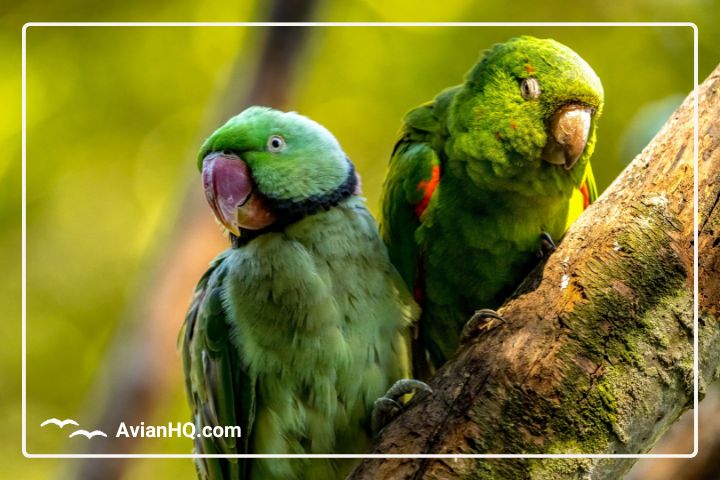
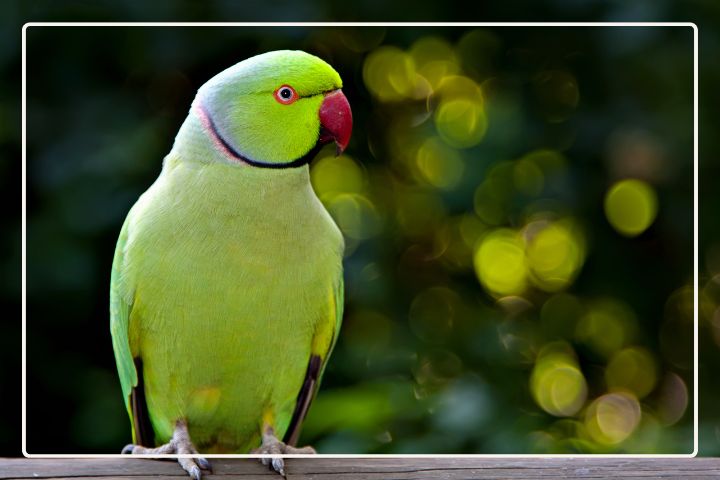
Watch YouTube Short
Vibration Diagnostics Tools for Repair and Maintenance: Balanset-1A
In the realm of industrial maintenance and repair, ensuring the optimal performance of rotating machinery is paramount. Enter the Balanset-1A, a sophisticated device designed for the precise balancing and vibration analysis of rotors. Whether dealing with crushers, turbines, or fans, this tool offers unparalleled accuracy and convenience, making it essential for maintenance professionals.
Understanding Rotor Balancing
Rotor balancing is a crucial process that minimizes vibration and extends the lifespan of machinery. It involves adjusting the distribution of mass in a rotor to ensure smooth rotation. There are two primary methods of balancing:
Single Plane Balancing: This “static” method is suitable for narrow, disk-like rotors that do not exhibit significant axial wobble. Examples include grinding wheels, belt pulleys, and flywheels.
Two Plane Balancing: Known as “dynamic” balancing, this technique is used for longer, shaft-like rotors that require support at two points. Typical applications include electric motor rotors, compressor shafts, and turbine wheels.
The Balanset-1A: A Comprehensive Solution
The Balanset-1A, developed by Vibromera, is a versatile two-channel device that excels in both balancing and vibration diagnostics. Its features include:
Vibrometer Mode: Offers precise measurements of rotational speed, phase angles, and the fundamental frequency component of vibrations.
Balancing Mode: Enables single and two-plane balancing, complete with a polar graph for visualizing unbalance and a tolerance calculator adhering to ISO 1940 standards.
Steps in Balancing with Balanset-1A
The process of rotor balancing using the Balanset-1A involves several key stages:
Preparation: Secure vibration sensors perpendicular to the rotor’s axis and attach a laser tachometer. Connect the device to a laptop and launch the Balanset software.
Initial Vibration Measurement: Measure the initial vibration levels to determine the imbalance’s amplitude and phase.
Balancing in the First Plane: Attach a test weight to the first balancing plane, measure the vibration, and ensure a significant change to confirm partial correction.
Balancing in the Second Plane: Relocate the test weight to the second plane, measure again, and gather data for precise corrective weight placement.
Imbalance Correction: Based on software recommendations, apply corrective weights at specified angles.
Final Verification: Conduct a final check to ensure vibrations are within acceptable levels. Make adjustments if necessary.
Ensuring Optimal Performance
Before commencing the balancing process, it’s advisable to manually check for significant static imbalance. By rotating the rotor and observing its equilibrium position, initial adjustments can be made to reduce vibrations during initial runs.
Regular vibration analysis using Balanset-1A helps identify potential issues such as bearing wear or misalignment, ensuring machinery operates efficiently. By storing and reviewing measurement data, maintenance teams can track performance trends and make informed decisions.
Conclusion
The Balanset-1A is more than just a balancing tool; it’s an investment in the longevity and efficiency of your machinery. With its advanced features and user-friendly interface, it empowers maintenance professionals to perform precise diagnostics and corrections, thereby safeguarding industrial operations.
For those committed to maintaining peak operational standards, the Balanset-1A is an indispensable asset in the toolkit of modern maintenance and repair tasks.
Contact Information:
For more information about our Balanset balancing devices and other products, please visit our website: https://vibromera.eu.
Subscribe to our YouTube channel, where you will find instructional videos and examples of completed work: https://www.youtube.com/@vibromera.
Stay updated with our latest news and promotions on Instagram, where we also showcase examples of our work: https://www.instagram.com/vibromera_ou/.
Buy Balanset-1A on Machinio
Balanset-1A OEM on Facebook Marketplace